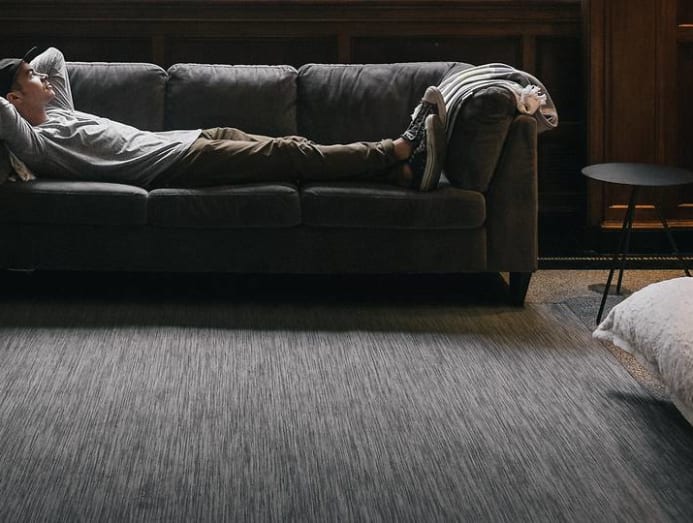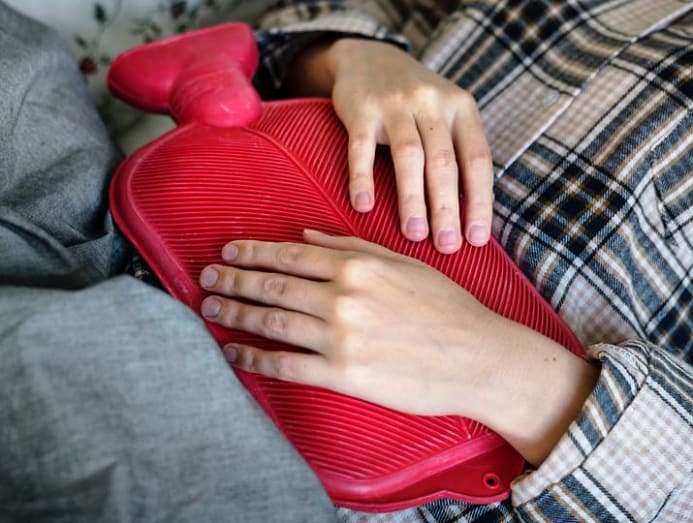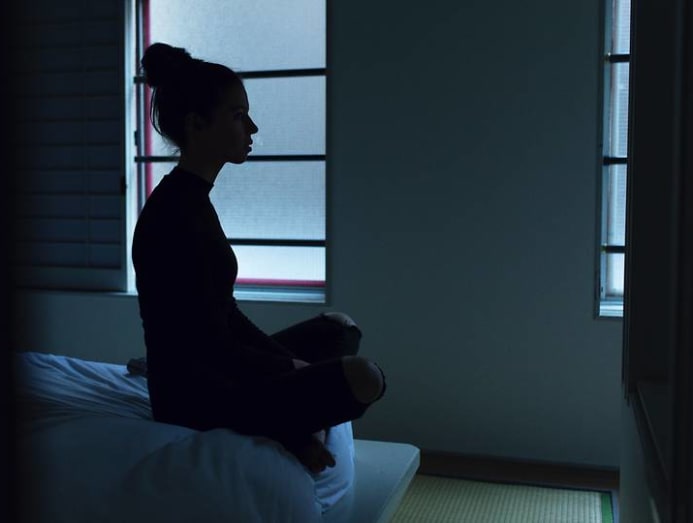Can’t sleep at night, dozing off in the day – it could point to bigger health issues
Depression, cardiovascular diseases, thyroid disorders are some of the medical conditions that may be the underlying cause of your insomnia, say experts.

(Photo: Unsplash/Hutomo Abrianto)
If there was a movie called Sleepless In Singapore and all it featured was someone tossing and turning in bed the entire time, it would still be a, well, sleeper hit across the country.
That's because it's pretty relatable. Four in 10 people lack sleep on weekdays, and 26 per cent have that problem on weekends, revealed a SingHealth Polyclinic study in 2016.
As a result, you’re likely to be sleeping an average of less than seven hours a night, according to the same study, when you really should be clocking in eight full hours.
Just this June and July, an international poll found that Singaporeans were the second-most sleep-deprived people amongst the 12 countries surveyed, cited Dr Gan Eng Cern, consultant ENT surgeon from A Specialist Clinic For Sinus Snoring & ENT at Mount Elizabeth Novena Hospital.
“Approximately 62 per cent of Singaporeans stated that they are not getting sufficient sleep," he said.

But what if the difficulty in falling asleep – or staying asleep – is not just about cutting back on pre-bedtime social media use or worrying about the next day’s presentation?
“Many patients with sleep problems do not seek medical help. So, as doctors, we only see the tip of the iceberg,” said Dr Jeeve Kanagalingam, a senior consultant at Mount Elizabeth Novena Hospital’s The ENT Clinic.
And while a short duration of sleep interruption – be it stress induced or caused by jet lag – can be self-corrected in time, said Dr Kanagalingam, “any sleep disruption that continues for a month without an obvious identifiable cause deserves medical attention”.
MEDICAL ISSUES THAT ROB YOU OF SLEEP

Many people are aware that avoiding caffeine and nicotine before bedtime, keeping blue light from smartphones to a minimum at night, avoiding napping in the afternoon or evening, and eating less rich and fatty food at dinner time all go in some ways to help you sleep better.
Keeping to a regular sleep schedule, and creating a sleep-conducive environment such as keeping your bedroom cool, dark and quiet will also help you slip into La La Land better.
READ: The real reason you and your spouse fight over the blanket and air-con remote control

This disorder of the nervous system causes an uncomfortable itch, or a feeling of something crawling under the skin in the legs, giving you an uncontrollable urge to move your limbs. The sensation, which can be indescribable at times, is worse when you’re lying or sitting, and especially at night, said Dr Gan.
While the cause of restless leg syndrome (RLS) is unknown, Dr Gan said that certain conditions such as kidney failure, iron deficiency, pregnancy, neuropathy (or nerve damage), alcohol and tobacco use, and sleep deprivation may cause RLS.
Some researchers suspect the condition may be caused by an imbalance of the brain chemical dopamine, which sends messages to control muscle movement, according to the Mayo Clinic website.
- POLYCYSTIC OVARY SYNDROME (PCOS)

Progesterone gets a mention here because it is known as the relaxing hormone and has a mildly sedative effect, according to the Yale Medicine website. While it sounds like a great sleep ally to have, its effects may be limited as its level in men is a lot lower than women’s.
Women can’t count on progesterone either as it fluctuates according to their menstrual cycles. For instance, progesterone is at its lowest at the start of a period – which may explain why some women have difficulty sleeping before Aunt Flo arrives.
READ: Is your family in perpetual flu hell? Women may suffer from it more than men
However, when sleep loss becomes severe and extended in women, it may be a good idea to check for polycystic ovary syndrome (PCOS).
According to the Yale Medicine website, PCOS is often linked to low levels of progesterone, which can exacerbate sleep difficulties. This hormonal disorder creates infrequent or prolonged periods, and causes the ovaries to develop numerous small collections of fluid, and failure to regularly release eggs.
Additionally, the website noted that women with PCOS also have a higher risk of developing sleep apnoea – a sleep disorder that causes a person to unconsciously pause his breathing or breathe shallowly during sleep.
An international poll found that Singaporeans were the second-most sleep-deprived people amongst the 12 countries surveyed.
- OBSTRUCTIVE SLEEP APNOEA (OSA)
It happens when the muscles in your air passageway relaxes during sleep, and wind up partially or completely blocking it. “The sufferer literally stops breathing or chokes for 10 to 30 seconds during sleep,” said Dr Gan.
The choking usually succeeds in getting your body to contract the airway’s muscles and open up the passageway to allow breathing again. The patient’s sleep quality usually suffers because these choking episodes can take place many times throughout the night. “It is estimated that three in 10 middle-aged Singaporean males have OSA,” said Dr Gan.
READ: Simple tweaks to your routine at home and the office can help ease your back pain
You may not be conscious of the gasping during sleep. But these encounters – and your loud snoring – may be brought to your attention by your spouse. On your end, you may experience morning headaches, feel excessively sleepy in the day and at night, the need to pass urine frequently, said Dr Gan.
There are a few factors that can explain OSA. Patients are likely to have a blocked nose caused by nasal allergies, enlarged turbinates (internal structures in your nose that warm and moisten the air you breathe in) or a deviated nasal septum (the cartilage separating your left and right nostrils), said Dr Gan.
- THYROID DISEASE

Sometimes, hypothyroidism may contribute to OSA. The condition refers to the body’s inability to produce sufficient thyroid hormone, creating a cascade of issues, including the enlargement of the tongue or disruption of the muscles that control the upper airway, wrote Dr Brandon Peters, a neurologist and sleep medicine specialist on the Very Well Health website.
And because the thyroid hormone also regulates metabolism, patients with hypothyroidism are at risk of obesity, another factor that contributes to OSA, noted Dr Peters.
The other end of the spectrum is hyperthyroidism, when the body secretes too much of the thyroid hormone. The disorder overstimulates the nervous system, making it hard for you to fall asleep, and it may cause night sweats, leading to nighttime arousals.
- CARDIOVASCULAR DISEASES

Sleep problems and heart disease may sound like an unlikely pair but they can be bedfellows, according to Dr Peter Ting, a cardiologist and medical director of StarMed Specialist Centre. “There is a proven strong relationship between sleep and cardiovascular diseases, such has heart disease, stroke, hypertension and irregular heart rhythms.”
“Given the increasing prevalence of sleep disorders, it is important to evaluate all heart patients for possible underlying sleep disorders and ensure that they are adequately treated in order to improve their heart conditions,” he said.
An article on Health Harvard’s website noted that there is evidence that heart failure leads to central sleep apnoea. This repeated start-stop sequence in your breathing during sleep happens when your brain doesn't send proper signals to the muscles that control your breathing. The website also highlighted other ways heart issues can interrupt your sleep: Chest pains and heart palpitations.
There is a proven strong relationship between sleep and cardiovascular diseases, such has heart disease, stroke, hypertension and irregular heart rhythms.
Conversely, poor sleep has also been linked with high blood pressure, atherosclerosis, heart failure, heart attack and stroke, diabetes, and obesity. Inflammation may be a thread that ties these together.
Poor sleep increases levels of substances that reflect active inflammation, the body's response to injury, infection, irritation, or disease. It is a key player in heart disease, diabetes, and other chronic conditions. Poor sleep also revs up the body's sympathetic nervous system, which is activated by fright or stress.
- DEPRESSION

Sleep loss and depression feed each other. According to the Psycom website, depressed individuals often have difficulty falling asleep or staying asleep. On the flip side, sleep deprivation can lead to depressed mood, irritability and moodiness. “It can be difficult to decipher which came first, the depression or the sleep disturbance,” noted the website.
Sleep deprivation weakens the prefrontal cortex’s ability to control the amygdala, making it difficult for you to process and cope with your feelings. When the brain is deprived of adequate sleep, it also impacts its cognitive function, resulting in “bad moods, negative thinking, decreased empathy, and poor impulse control”, as mentioned on Psycom.





